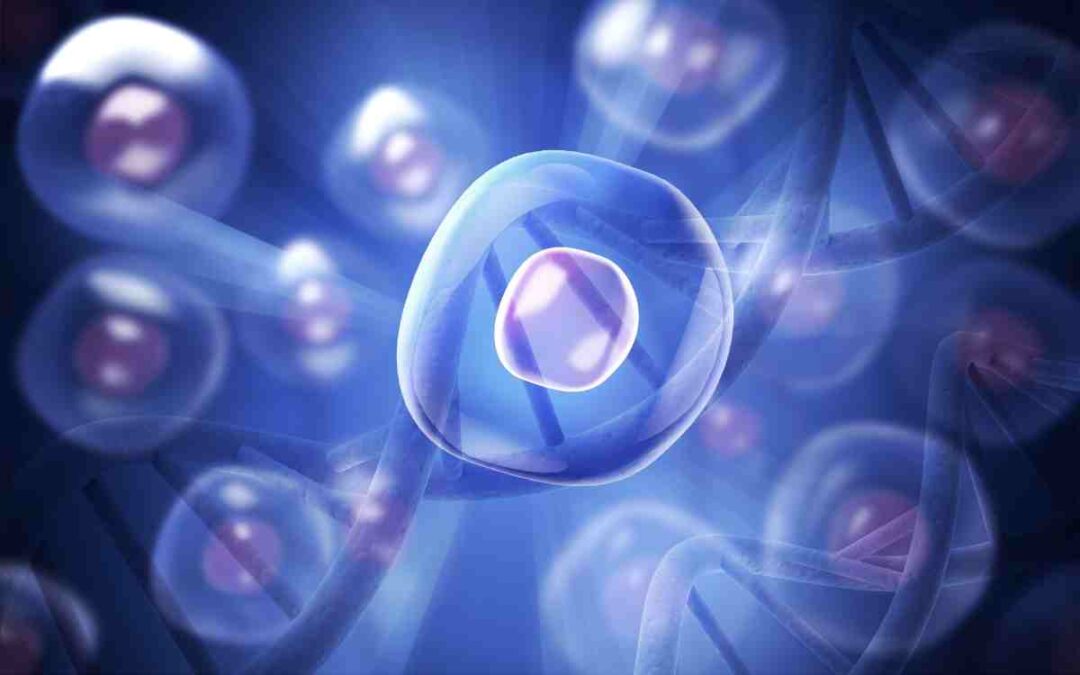Feel Younger, Live Longer: Science-Based Strategies for Healthy Aging
Introduction: You Can Influence How You Age
Aging is a natural process — but the way you age is increasingly seen as something you can influence. While we can’t stop the passage of time, we can support our cells in staying healthy and resilient for longer. Cellular aging is the foundation of how your body ages overall, and it’s driven by factors like DNA damage, mitochondrial dysfunction, chronic inflammation, and oxidative stress.
Emerging science shows that strategic changes in diet, supplementation, and lifestyle can slow down these processes, promoting not only a longer life but a healthier, more vibrant one. This article dives into the most effective, research-backed ways to preserve your cellular health and age gracefully, inside and out.
What Is Cellular Aging?
Cellular aging refers to the progressive loss of function and regenerative capacity in your body’s cells. Over time, cells divide less efficiently, accumulate damage, and become less capable of responding to stress. Some of the main drivers of cellular aging include:
-
Telomere shortening – Telomeres protect your DNA during replication. As they shorten, cells lose their ability to divide.
-
Mitochondrial decline – The “powerhouses” of the cell become less efficient, leading to fatigue and dysfunction.
-
Oxidative stress – Free radicals damage cellular components, including DNA and membranes.
-
Chronic inflammation – Known as “inflammaging,” this low-grade inflammation accelerates tissue damage.
-
Metabolic stress – Poor blood sugar control and toxin accumulation further burden cellular systems.
These processes contribute to a wide range of age-related conditions — from wrinkles and memory loss to cardiovascular disease and immune dysfunction.
Signs of Accelerated Cellular Aging
You may be aging at a cellular level faster than you realize. Here are some common warning signs:
-
Persistent fatigue and low energy
-
Brain fog, memory lapses, or lack of mental clarity
-
Sagging skin, wrinkles, or dull complexion
-
Frequent colds, slow healing, or immune dysfunction
-
Mood swings, anxiety, or hormonal imbalance
-
Difficulty losing weight or managing blood sugar
If these sound familiar, it may be time to support your cells from within.
Science-Backed Ways to Slow Cellular Aging
1. Eat an Antioxidant-Rich Diet
Colorful plant foods are your first line of defense against oxidative stress. Focus on:
-
Deeply pigmented fruits and vegetables (berries, leafy greens, beets, carrots)
-
Herbs and spices (turmeric, ginger, rosemary, oregano)
-
Healthy fats (olive oil, avocados, walnuts)
-
Green tea and dark chocolate (in moderation!)
These foods are rich in polyphenols, flavonoids, and vitamins like C and E, which neutralize free radicals and reduce inflammation.
2. Try Intermittent Fasting
Intermittent fasting (IF) has been shown to:
-
Activate autophagy, your body’s cellular recycling system
-
Reduce oxidative damage
-
Improve insulin sensitivity
-
Boost mitochondrial health
Popular IF protocols include 16:8 (16-hour fast, 8-hour eating window) or 5:2 (two days of reduced calories per week). Start slowly and work with your healthcare provider if needed.
3. Support Mitochondrial Health
Healthy mitochondria are essential for energy, cognition, and cellular resilience. Key nutrients include:
-
Coenzyme Q10 (CoQ10) – Vital for ATP energy production
-
Alpha-lipoic acid (ALA) – Antioxidant that supports mitochondrial enzymes
-
Acetyl-L-carnitine – Helps shuttle fatty acids into mitochondria for fuel
-
Magnesium – Essential for hundreds of enzymatic reactions
Adding these through supplements or diet can help reduce fatigue and enhance cellular energy.
4. Use Longevity-Supportive Supplements
While a nutrient-rich diet is foundational, targeted supplementation can offer an extra edge. Top anti-aging compounds include:
-
Resveratrol – Found in red grapes; activates sirtuins and supports DNA repair
-
NMN or NR – Precursors to NAD+, a molecule critical for mitochondrial function
-
Spermidine – Promotes autophagy and healthy cell renewal
-
NAC or Glutathione – Boosts your body’s master antioxidant system
Always choose high-quality, third-party tested supplements, and consult a healthcare provider for dosing.
5. Exercise Consistently (But Smartly)
Physical activity is one of the most powerful anti-aging tools. It:
-
Enhances mitochondrial density and function
-
Improves insulin sensitivity and cardiovascular health
-
Reduces systemic inflammation
-
Increases brain-derived neurotrophic factor (BDNF), supporting brain health
A combination of aerobic (e.g., brisk walking, cycling) and resistance training (e.g., weights, bodyweight exercises) is ideal. Even 20–30 minutes per day can make a huge difference.
6. Prioritize Deep, Restorative Sleep
Your body heals and regenerates while you sleep — especially during deep sleep. To optimize your sleep:
-
Maintain a regular sleep-wake schedule
-
Avoid blue light screens at least an hour before bed
-
Keep your bedroom cool, dark, and quiet
-
Aim for 7–9 hours of quality sleep nightly
Sleep deprivation is strongly linked to accelerated aging, weight gain, and cognitive decline.
7. Manage Chronic Stress
Chronic stress triggers excess cortisol, which damages mitochondria, shortens telomeres, and disrupts hormones. Daily stress management is essential for healthy aging:
-
Breathwork and meditation
-
Forest walks or grounding practices
-
Creative hobbies and meaningful social connections
-
Mindful movement like yoga or tai chi
Even a few minutes per day can reset your nervous system and enhance resilience.
Advanced Therapies for Cellular Longevity
For those looking to take anti-aging to the next level, consider:
-
Red Light Therapy (Photobiomodulation) – Stimulates mitochondrial function and skin repair
-
Infrared Saunas & Cold Therapy – Promote detoxification, circulation, and stress resilience
-
Genetic & Epigenetic Testing – Track markers like telomere length or biological age (methylation clocks) to personalize your longevity strategy
These tools can complement lifestyle changes and provide powerful feedback on your progress.
Final Thoughts: Aging Is Inevitable — But Decline Is Optional
You can’t stop time, but you can support your cells in aging more slowly, more gracefully, and more healthfully. By focusing on diet, movement, sleep, supplementation, and stress reduction, you’re not just adding years to your life — you’re adding life to your years.
With consistency, awareness, and a proactive mindset, you can preserve your vitality, improve your resilience, and thrive at any age.


